| | | | | | | Presented By Raytheon Technologies | | | | Axios World | | By Dave Lawler ·Nov 12, 2020 | | Welcome back to Axios World. - We're covering a lot of ground tonight in our lucky 265th edition (1,694 words, 6 minutes), so let's dive right in.
Was this forwarded to you? Sign up here. | | | | | | 1 big thing: Biden's nuclear worries | 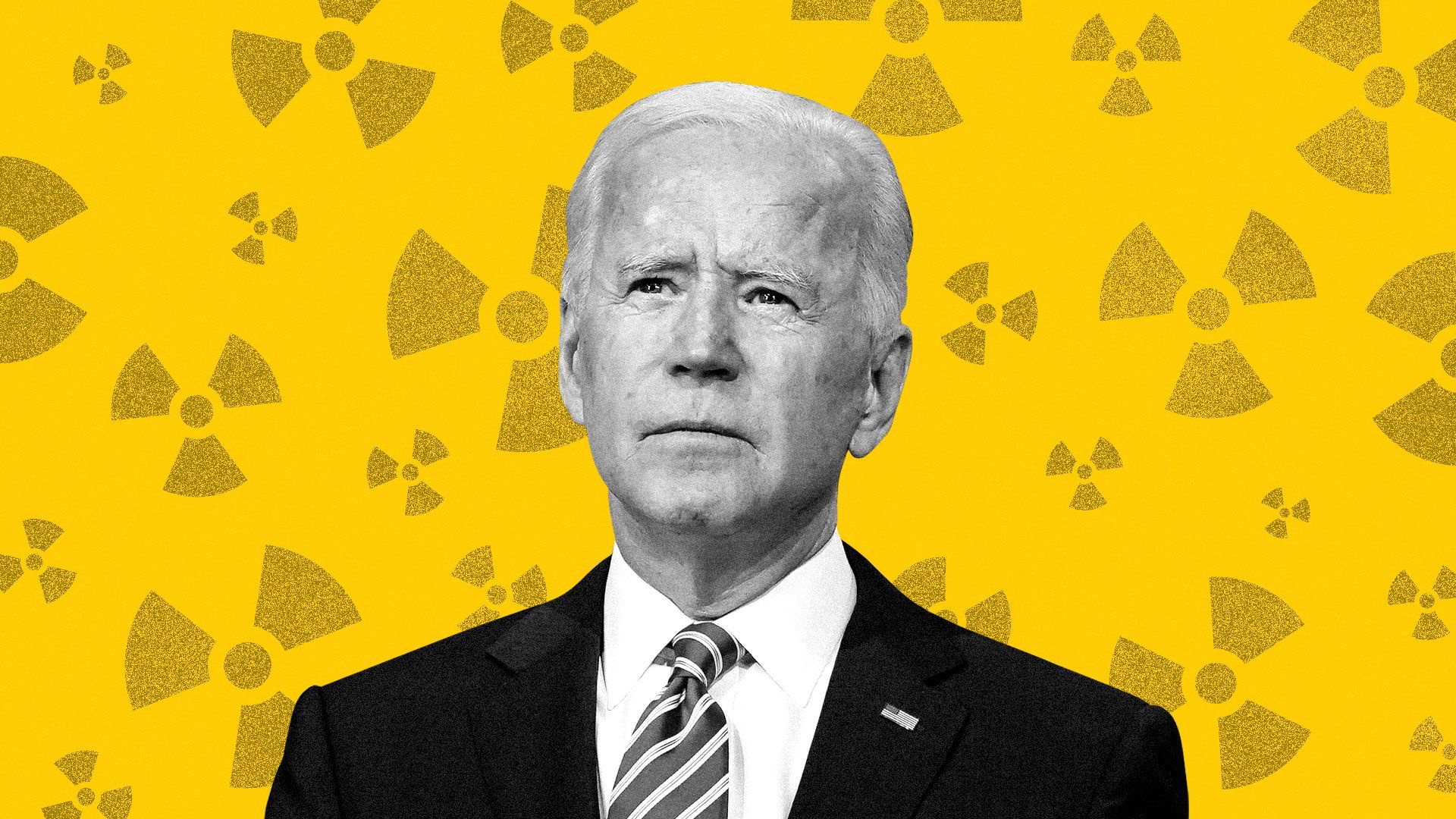 | | | Photo illustration: Eniola Odetunde/Axios. Photo: Drew Angerer/Getty Images | | | | Joe Biden will face three urgent nuclear challenges upon entering the White House. Why it matters: Arms control with Russia is crumbling, Iran's uranium stockpiles are growing, and North Korea is as vexing and threatening as ever. The last treaty constraining the world's two nuclear superpowers, New START, is due to expire 15 days after Biden takes office. - President Trump was skeptical of that Obama-era deal, but both Biden and Russia's Vladimir Putin want to activate a five-year extension. Their approval and a bit of protocol are all that's required.
- That will avert an immediate arms race. It won't address Russia's new weapons systems and smaller "tactical" nukes — not to mention China's unconstrained nuclear buildup.
- The Trump administration pushed a proposal for the "future of arms control," involving both Russia and China, but it arrived to the issue late and didn't get very far.
- State of play: Biden sees New START, once extended, as the "foundation for new arms control arrangements." But in a climate of distrust with Moscow and Beijing — and with a plethora of competing priorities — he might struggle to break much more new ground than Trump did.
Biden also wants to move quickly to salvage the Iran nuclear deal — promising to re-enter it by lifting sanctions if Iran returns to compliance. - Iranian leaders have said they'd hold up their end of that deal. But they want the U.S. to make the first move and have waved away the idea of a broader, longer-lasting deal, which is Biden's ultimate objective.
- The UN's nuclear watchdog also revealed this week that Iran's stockpile of low-enriched uranium is currently 12 times what is permissible under the deal. Iran has also advanced its nuclear research and updated its facilities since Trump withdrew in 2018.
- The Trump administration, meanwhile, is attempting to block the path back to the deal by piling on new non-nuclear sanctions that Biden might find politically tricky to lift.
- What to watch: Negotiations on a follow-on deal will probably have to wait for Iran to elect its next president in June.
Trump will soon hand back the challenge Barack Obama said would be the most difficult of his presidency: North Korea. - Where things stand: Besides parading a giant new missile through Pyongyang last month, Kim Jong-un has gone relatively quiet. Things won't stay that way.
- North Korea has a history of testing incoming U.S. administrations, and Kim has been clear that his suspensions of nuclear and long-range missile tests were only temporary.
- The leaders aren't starting on great terms. Biden called Kim a "thug" during the campaign, while North Korea labeled Biden a "rapid dog."
- Biden has proposed a bottom-up approach to negotiations, while working in conjunction with U.S. allies as well as China to apply pressure on Kim's regime. In the meantime, North Korea's nuclear capabilities will continue to advance.
The bottom line: North Korea might be Biden's most difficult foreign policy challenge too. Go deeper: Trump leaves Biden tough choices on China |     | | | | | | 2. Tracking Biden's calls | 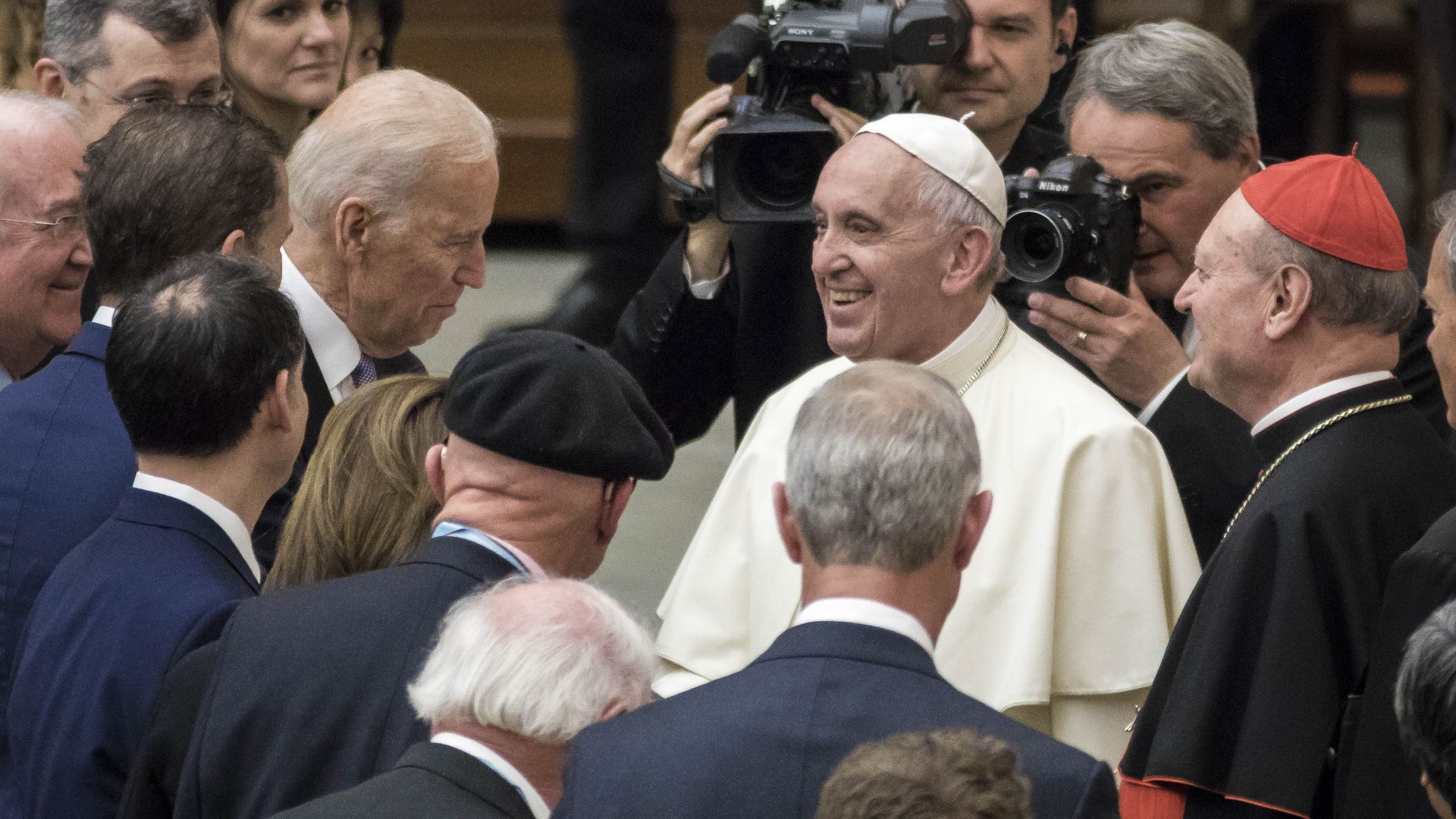 | | | "Call me some time." Photo: Giuseppe Ciccia/NurPhoto via Getty | | | | One ritual of becoming president-elect is the carousel of congratulatory phone calls with other world leaders. What to watch: The order in which the calls are returned is watched closely around the world. - On Monday, Biden began with Prime Minister Justin Trudeau of Canada. Mexican President Andrés Manuel López Obrador might have been next — but he has declined to congratulate Biden.
- On Tuesday, Biden moved on to European allies: French President Emmanuel Macron, German Chancellor Angela Merkel, U.K. Prime Minister Boris Johnson and Irish Prime Minister Micheál Martin.
- On Wednesday, Biden moved to the Asia-Pacific: Australian Prime Minister Scott Morrison, Japanese Prime Minister Yoshihide Suga and South Korean President Moon Jae-in.
- Today, Biden (who will be America's second Catholic president) talked with Pope Francis.
- Climate change has featured in every call so far.
Flashback: Trump's approach to these calls appeared a bit more scattershot. He quickly returned calls to the leaders of around a dozen countries — including Turkey, India and Egypt — while leaving some close allies like the U.K. waiting. - Trump also angered China by taking a call from Taiwanese President Tsai Ing-wen.
- Some of Trump's apparently off-the-cuff remarks in the calls made it into the press, though his transition team did not provide formal readouts as Biden's has done.
Worth noting: These calls would normally be arranged with the help of the State Department — including from interpreters as needed — but the Trump administration has declined to make those services available to Biden. What's next: It'll be worth watching Biden's call list in the coming days. Where might countries like India, Israel, Saudi Arabia or Turkey fall in the pecking order? Go deeper: Erdoğan finally congratulates Biden |     | | | | | | 3. Pompeo plans unprecedented West Bank trip |  | | | Pompeo (L) and Netanyahu in Jerusalem. Photo: Jim Young/AFP via Getty | | | | Secretary of State Mike Pompeo is planning to visit the Golan Heights and an Israeli settlement in the West Bank next week, both firsts for a U.S. secretary of state, Axios' Barak Ravid scoops. Why it matters: Since 1967, all previous U.S. administrations have treated the West Bank and Golan Heights as occupied territory. The big picture: The trip seems intended to highlight the Trump administration's policy shifts on Israel. For Pompeo, it also has domestic political significance ahead of a possible presidential run in 2024. - Pompeo has repeatedly highlighted his close links to Israel, including by addressing the Republican National Convention from Jerusalem.
- He was also the first secretary of state to make an official visit to the Western Wall in Jerusalem.
How we got here: Last November, Pompeo annulled a State Department legal opinion from 1978 that deemed Israeli settlements in the West Bank "inconsistent with international law." He and U.S. ambassador to Israel David Friedman were the driving forces behind that shift. - That announcement came a week after the EU high court had ruled that all EU member states must place a special label on goods originating from Israeli settlements in the West Bank.
- The ruling had come in response to an appeal by the owner of a winery in the Psagot settlement.
- After Pompeo's announcement, the owner of the winery named a new series of wine after Pompeo and sent him a case of wine bottles.
Pompeo is planning to visit that same winery next week. Go deeper |     | | | | | | A message from Raytheon Technologies | | The future of aerospace and defense is here | | |  | | | | At Raytheon Technologies, nearly 200,000 engineers, scientists and researchers are pushing the limits of known science to explore deep space, advance aviation and build smarter defense systems that protect all of us here at home. That's the future of aerospace and defense. Learn more at RTX.com | | | | | | 4. State of the outbreak: Who's buying Russia's vaccine? | 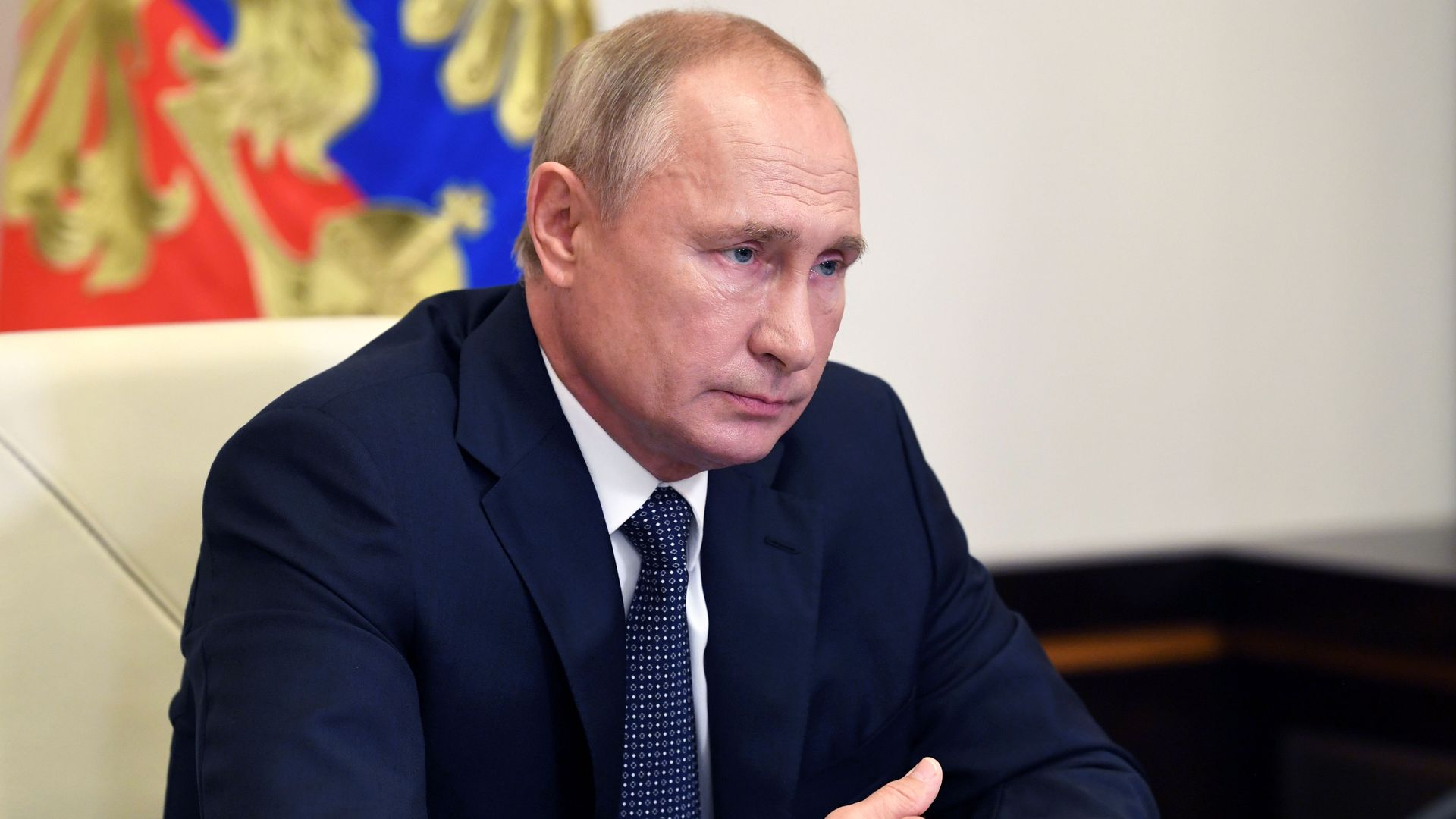 | | | "Trust me. It's safe." Photo: Alexy Nikolsky/Sputnik/AFP via Getty | | | | Not to be outdone by Pfizer's big announcement, Russia's state-run Gamaleya Research Institute announced Wednesday that its Sputnik V vaccine is 92% effective. Why it matters: Experts have criticized the lack of transparency around the vaccine and the haste with which the Kremlin approved it, but several countries are lining up to gain access. - Hungary is the first EU country to announce a plan to buy it, per the FT. It expects a sample within the next week or so, and it's in "advanced negotiations" for a larger order.
- Russia has already sold doses to Brazil, India, Mexico and Egypt, per WSJ. It also plans to make the vaccine available to countries in its neighborhood, like Kazakhstan.
- The Philippines plans to join clinical trials for the vaccine, with President Rodrigo Duterte even saying he would be injected himself.
- Russia has discussed the distribution of its vaccine with a number of other countries, including Indonesia, Saudi Arabia and the UAE.
Yes, but: The rhetoric from Moscow has been far out in front of any evidence that the vaccine is safe, effective and can be developed at a sufficient scale to be distributed around the world. The bottom line: "Why is Russia doing this? It's the international vaccine race. They want to be seen to be keeping up with their competitors in other countries," John Moore, a vaccine researcher at Cornell told Science. "It's clearly a rushed out announcement. But it doesn't mean it's wrong." Go deeper: EU purchases 200m doses of Pfizer's vaccine |     | | | | | | 5. Global news roundup |  | | | Police guard government buildings in Yerevan, Armenia, amid protests over the government's decision to surrender to Azerbaijan. Photo: Alex McBride/Getty Images | | | | 1. Ethiopian Prime Minister Abiy Ahmed claimed today that the western Tigray region had been "liberated" from forces aligned with the regional government, which is now at war with Abiy and the federal government. - Abiy began the offensive last week after a prolonged power struggle with the regional ruling party, the TPLF.
- But while Abiy claims the military campaign is succeeding, many of the fears it provoked are also coming true.
- The latest: Amnesty International reports that dozens of civilians were killed in a "massacre" that witnesses said was carried out by forces loyal to the TPLF following a defeat in battle.
2. Myanmar's National League for Democracy won an overwhelming majority according to election results released yesterday. - The party is led by Aung San Suu Kyi who (like Abiy) is a Nobel peace laureate. Her reputation has been tarnished by her alleged complicity in the Rohingya genocide (the Rohingya were not allowed to vote in the election).
- Her main political opposition, which is linked to the powerful military, rejected the results.
3. Peruvian President Martín Vizcarra, who survived a series of previous showdowns with Congress, was suddenly impeached and removed from office on Monday. - Why it matters: The move was widely seen as "a crass effort by lawmakers to protect their personal interests and shield themselves from corruption investigations," WSJ notes. 68 of the 130 members of Congress are facing criminal investigations.
- Peruvians took to the streets, calling the move a coup. Go deeper via Americas Quarterly
4. Belize could teach some larger democracies a thing or two about smooth transfers of power. - The ruling party candidate conceded defeat last night after early returns showed opposition leader John Antonio Briceno on track to become prime minister.
5. China disqualified four pro-democracy lawmakers in Hong Kong, leading nearly all of the opposition to resign en masse today. - China condemned that decision as an "open challenge to its power."
- The U.S., U.K. and EU, meanwhile, condemned China's latest encroachment on Hong Kong's autonomy, which has all but vanished. The U.K. is considering sanctions.
|     | | | | | | 6. The dictator's favorite dog | | Screengrab via Twitter Turkmenistan's president, Gurbanguly Berdymukhamedov, unveiled a giant golden statue today of his favorite dog breed, the Alabay. - Per the BBC, the statue "features an LED screen with video footage of the breed in various situations."
- The dog is "officially listed as an asset of the country's national heritage, along with the handmade carpets and the ancient Ahal Teke breed of race horse."
- Flashback: Berdymukhamedov once presented a puppy as a gift to Vladimir Putin. Putin seemed pleased with the gift but not with the dictator's decision to grab the dog by the back of its neck and hold it aloft.
|     | | | | | | 7. Stories we're watching | 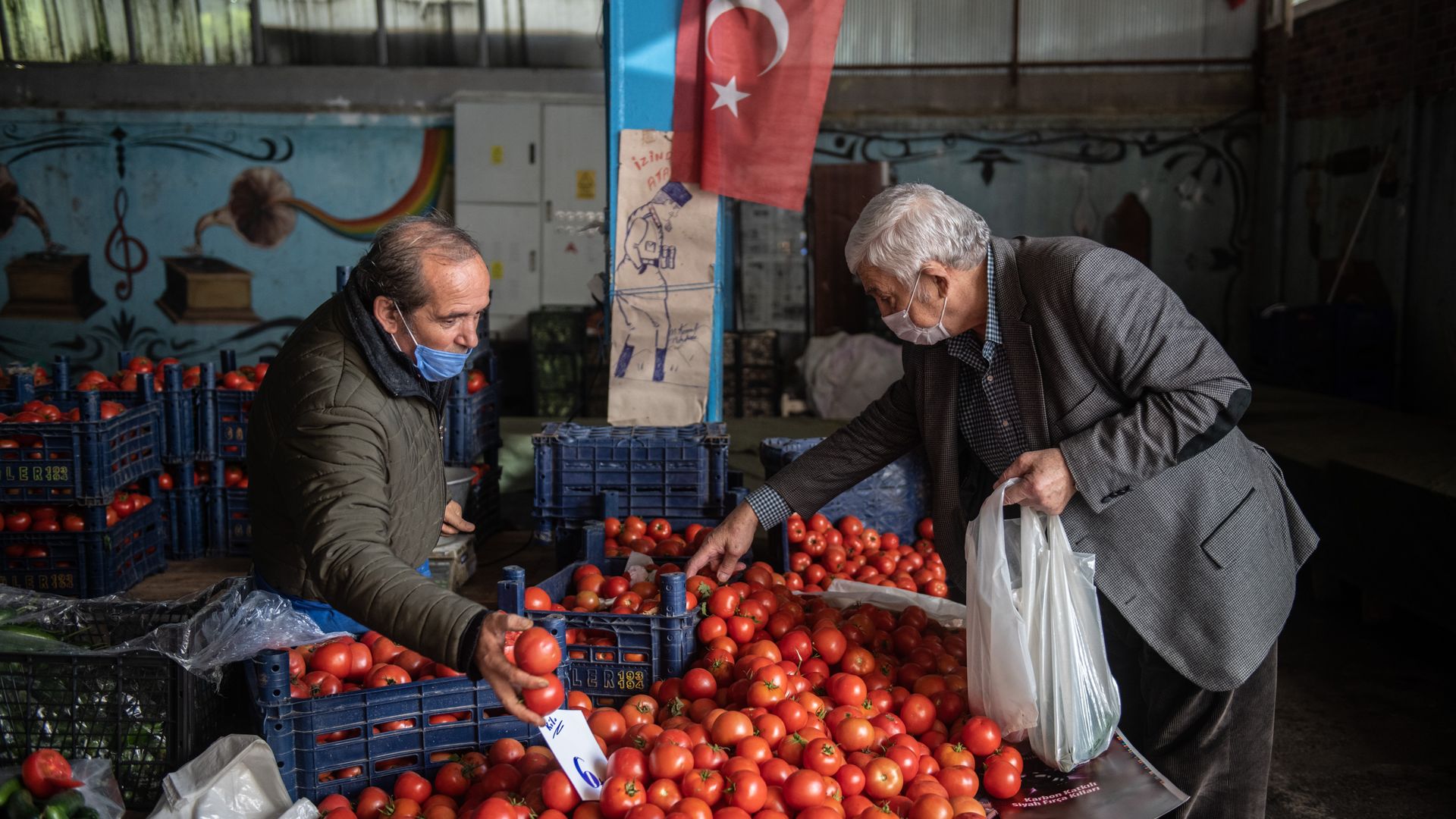 | | | Buying tomatoes in Istanbul. Photo: Burak Kara/Getty Images | | | - Longtime Palestinian peace negotiator Saeb Erekat dies at 65
- Mixed reactions to Biden's victory across Middle East
- What China thinks of Biden
- Jordan holds election amid sharp coronavirus spike
- Incoming Israeli ambassador will have to win over Democrats
- EU hits Amazon with antitrust charges
- Divisive Pentagon hire may rush troop withdrawals
Quoted: "I would say no company could ever make sure." — Volkswagen China CEO Stephan Wollenstein when pressed by the BBC on whether any employees at the VW factory in Xinjiang had ever been held in detention camps. |     | | | | | | A message from Raytheon Technologies | | The future of aerospace and defense is here | | |  | | | | At Raytheon Technologies, nearly 200,000 engineers, scientists and researchers are pushing the limits of known science to explore deep space, advance aviation and build smarter defense systems that protect all of us here at home. That's the future of aerospace and defense. Learn more at RTX.com | | | | | | Axios thanks our partners for supporting our newsletters.
Sponsorship has no influence on editorial content. Axios, 3100 Clarendon Blvd, Suite 1300, Arlington VA 22201 | | | You received this email because you signed up for newsletters from Axios.
Change your preferences or unsubscribe here. | | | Was this email forwarded to you?
Sign up now to get Axios in your inbox. | | | | Follow Axios on social media:    | | | | | |








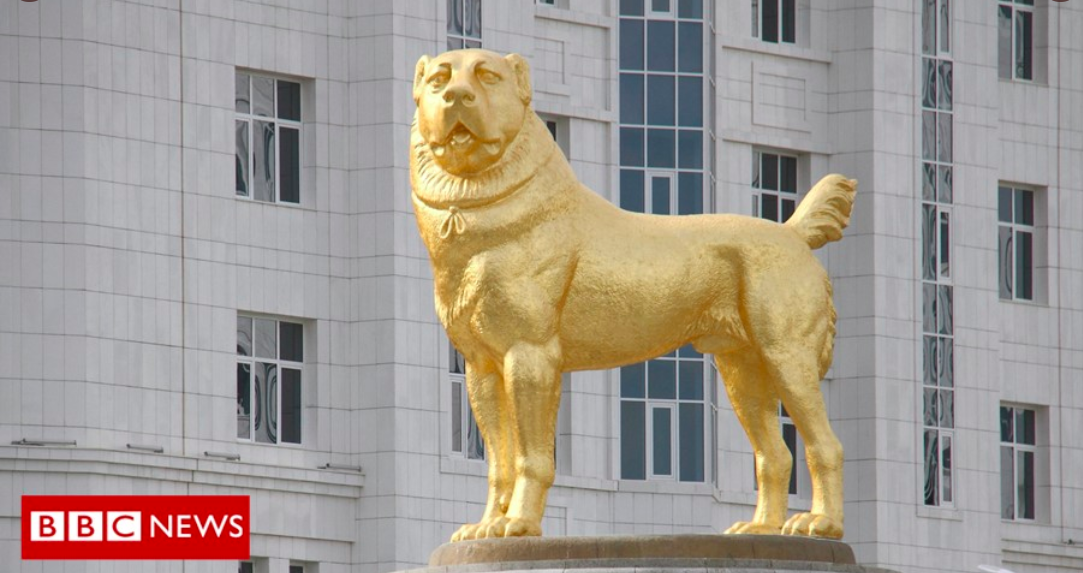

No comments:
Post a Comment